North Korea had a price for South Korea reconciliation talks: $10 billion
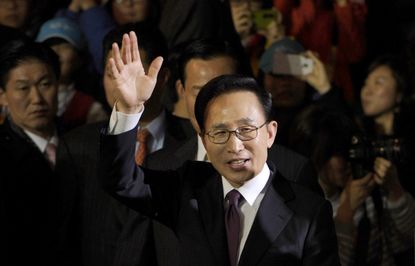

When North and South Korea met for unification talks in 2000, it emerged later, then–South Korean President Kim Dae-jung helped funnel $500 million to late North Korean leader Kim Jong Il. So when Kim Jong Il wanted to meet with another South Korean president, Lee Myung-bak, in 2009, he had some bigger demands, Lee writes in a new book, according to Reuters. Lee was president from 2008 to 2013.
The conditions for the talk included $10 billion in cash, 400,000 tons of rice, 100,000 tons of corn, and 300,000 tons of fertilizer, Lee writes, adding that in his opinion, "we shouldn't be haggling for a summit." He didn't agree to the terms, and partly because of that, and partly because Kim Jong Il refused to acknowledge a 2010 torpedo attack that killed 46 South Korean sailors, Lee writes, he never met the North Korean leader before Kim's death in 2011. Last week, North Korea issued new demands for reconciliation talks: South Korea has to lift the sanctions Lee imposed after the deadly torpedo attack.
Subscribe to The Week
Escape your echo chamber. Get the facts behind the news, plus analysis from multiple perspectives.

Sign up for The Week's Free Newsletters
From our morning news briefing to a weekly Good News Newsletter, get the best of The Week delivered directly to your inbox.
From our morning news briefing to a weekly Good News Newsletter, get the best of The Week delivered directly to your inbox.
Create an account with the same email registered to your subscription to unlock access.
Sign up for Today's Best Articles in your inbox
A free daily email with the biggest news stories of the day – and the best features from TheWeek.com
Peter has worked as a news and culture writer and editor at The Week since the site's launch in 2008. He covers politics, world affairs, religion and cultural currents. His journalism career began as a copy editor at a financial newswire and has included editorial positions at The New York Times Magazine, Facts on File, and Oregon State University.
-
 'Criminal trail?'
'Criminal trail?'Today's Newspapers A roundup of the headlines from the US front pages
By The Week Staff Published
-
 Grindr 'shared user HIV status' with ad firms, lawsuit claims
Grindr 'shared user HIV status' with ad firms, lawsuit claimsSpeed Read LGBTQ dating app accused of breaching UK data protection laws in case filed at London's High Court
By Rebecca Messina, The Week UK Published
-
 The best dog-friendly hotels around the UK
The best dog-friendly hotels around the UKThe Week Recommends Take a break with your four-legged friend in accommodation that offers you both a warm welcome
By Adrienne Wyper, The Week UK Published
-
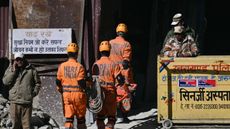 Puffed rice and yoga: inside the collapsed tunnel where Indian workers await rescue
Puffed rice and yoga: inside the collapsed tunnel where Indian workers await rescueSpeed Read Workers trapped in collapsed tunnel are suffering from dysentery and anxiety over their rescue
By Sorcha Bradley, The Week UK Published
-
 More than 2,000 dead following massive earthquake in Morocco
More than 2,000 dead following massive earthquake in MoroccoSpeed Read
By Justin Klawans Published
-
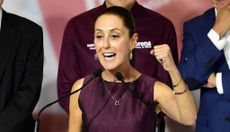 Mexico's next president will almost certainly be its 1st female president
Mexico's next president will almost certainly be its 1st female presidentSpeed Read
By Peter Weber Published
-
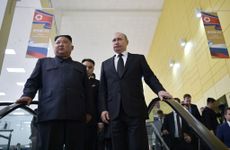 North Korea's Kim to visit Putin in eastern Russia to discuss arms sales for Ukraine war, U.S. says
North Korea's Kim to visit Putin in eastern Russia to discuss arms sales for Ukraine war, U.S. saysSpeed Read
By Peter Weber Published
-
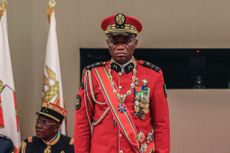 Gabon's military leader sworn in following coup in latest African uprising
Gabon's military leader sworn in following coup in latest African uprisingSpeed Read
By Justin Klawans Published
-
 Nobody seems surprised Wagner's Prigozhin died under suspicious circumstances
Nobody seems surprised Wagner's Prigozhin died under suspicious circumstancesSpeed Read
By Peter Weber Published
-
 Western mountain climbers allegedly left Pakistani porter to die on K2
Western mountain climbers allegedly left Pakistani porter to die on K2Speed Read
By Justin Klawans Published
-
 'Circular saw blades' divide controversial Rio Grande buoys installed by Texas governor
'Circular saw blades' divide controversial Rio Grande buoys installed by Texas governorSpeed Read
By Peter Weber Published